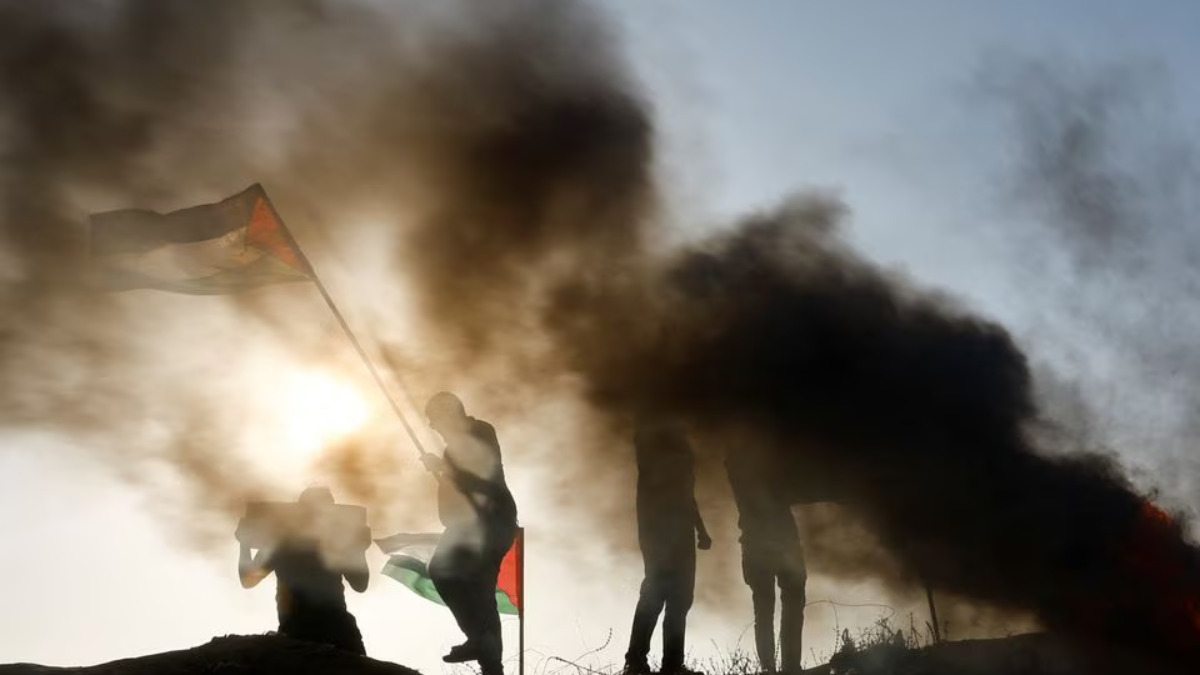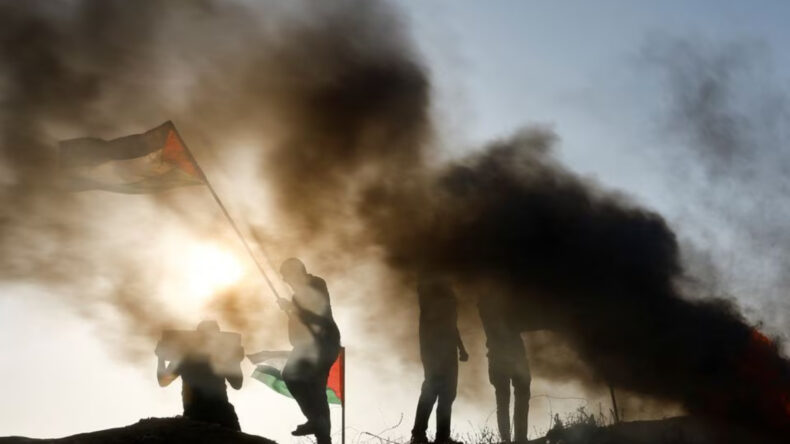On July 3, Israel conducted a significant operation in the Jenin refugee camp, which is a stronghold for Palestinian militants in the West Bank under Israeli control. During the clashes between Israeli forces and armed individuals, 12 Palestinians lost their lives.

Since March 2022, the Jenin area and its surrounding regions in the northern part of the West Bank, which is under Israeli occupation, have experienced increased military operations initiated by Israel’s nationalist-religious government. These raids were prompted by a series of street attacks carried out by Palestinians.
The Jenin camp has been a longstanding center for militants, housing various types of light weaponry and an expanding collection of explosive devices. The Israeli military consistently accuses militant factions of deploying fighters within densely populated urban zones, including refugee camps established in 1948. It is common for these militants to reside in the camp, often with their families.
In January, a military operation conducted by Israeli forces resulted in the deaths of seven armed individuals and two civilians in Jenin. In a recent incident, militants engaged in a prolonged exchange of gunfire with Israeli troops, leading to the killing of six Palestinians and over 90 injuries. Seven Israeli personnel were wounded when their armored vehicle was disabled by a landmine.
In retaliation, Palestinian gunmen killed four Israelis near a Jewish settlement, which subsequently led to settlers engaging in violent actions such as rampaging through Palestinian towns, setting fire to buildings and cars.
This escalation of violence, reminiscent of the intense clashes during the Palestinians’ 2000-2005 Intifada (uprising), occurs in a context where peace negotiations for Palestinian statehood have been absent for a prolonged period. The Palestinian political leadership is facing increasing weakness, and there has been a steady expansion of Jewish settlements on occupied land under the most hardline nationalist government in Israel’s history.
Where is Jenin and what is life like there?
Jenin is a small city located in the northern hilly region of the West Bank, situated near the Israeli border. Within the city lies a densely populated refugee camp called Jenin, comprised of concrete and cinder-block structures, accommodating approximately 14,000 individuals. These residents are descendants of Palestinians who were displaced during the establishment of Israel in 1948. The majority of the camp’s inhabitants face economic hardship, unemployment, and live in impoverished conditions. This difficult history fosters deep-seated animosity towards Israel and contributes to the support for Palestinian militant organizations.
Jenin experienced some of the most intense violence during the second Intifada, a period of armed conflict between Israel and militant groups that erupted after the breakdown of U.S.-supported peace negotiations in 2000.
Jenin played a significant role in producing numerous suicide bombers who were at the forefront of the uprising. In an effort to suppress the violence, Israeli armored forces conducted a severe military operation in April 2002, specifically targeting the refugee camp in Jenin. This operation was part of a broader crackdown on areas where Palestinians had previously exercised limited self-governance under interim peace agreements in the 1990s.
According to reports from the United Nations, during the conflict in Jenin, 52 Palestinians lost their lives, with a potential estimation of half of them being civilians. In comparison, Israel suffered the loss of 23 soldiers. The extensive damage resulted in over 400 homes being demolished, leaving over a quarter of the population homeless and requiring a reconstruction effort for the camp.
In the present day, Israel has raised concerns about the increasing number of armed individuals in Jenin and their accumulation of weapons and ammunition. The Israeli government alleges that the camp serves as a center for planning and preparing militant attacks, while also serving as a safe haven for fighters who receive funding from groups like Hamas or the Iranian-backed Islamic Jihad.
Additionally, Israel reports that since the beginning of 2024, Jenin and its surrounding areas have witnessed more than 50 shooting attacks carried out by militants. Furthermore, nearly half of the population in the region is said to have affiliations with either Hamas or Islamic Jihad.
Israel became increasingly concerned when militants near Jenin launched two improvised rockets last month, raising fears that the situation in the West Bank could mirror that of the Gaza Strip. In 2005, Israel withdrew its settlers from Gaza, and armed Islamist factions now hold power there.
Recent Israeli raids in Jenin, conducted on a smaller scale, have faced challenges due to militants booby-trapping narrow streets with explosives and their ability to quickly detect unfamiliar individuals in the camp. These difficulties have contributed to the large-scale Israeli operation in early July, which involved more than 1,000 soldiers. Additionally, Israel made the uncommon decision to support the ground operation with drone strikes, aiming to dismantle militant infrastructure and disarm their weapons.
According to the Israeli military, several significant discoveries have been made in Jenin, including a command center equipped with CCTV cameras that monitor the entire camp. Additionally, a hidden tunnel and armory were reportedly found beneath a mosque.
Israel claims to have apprehended 120 individuals suspected of being militants in Jenin, while also reporting the killing of at least nine armed individuals. Among the ten Palestinian casualties, the identities of five have been officially confirmed.
History of Israeli-Palestine Conflict
In 1948, Israel was established after successfully defeating armies from various Arab nations in the Middle East. As a result, hundreds of thousands of Palestinians were displaced, leading to what Palestinians refer to as their Nakba, meaning “catastrophe.”
In a subsequent major conflict 19 years later, Israel gained control of the West Bank and East Jerusalem from Jordan, as well as Gaza from Egypt. Israel’s annexation of East Jerusalem, which is not internationally recognized, and the establishment of settlements in the West Bank and Gaza followed.
During the mid-1990s, Israel and the Palestinians reached interim peace agreements. However, subsequent negotiations for a final resolution on establishing a Palestinian state in the West Bank and Gaza, known as the “final status” talks, encountered persistent challenges related to borders, settlements, refugees, and Jerusalem. The last round of U.S.-brokered negotiations broke down in 2014.













